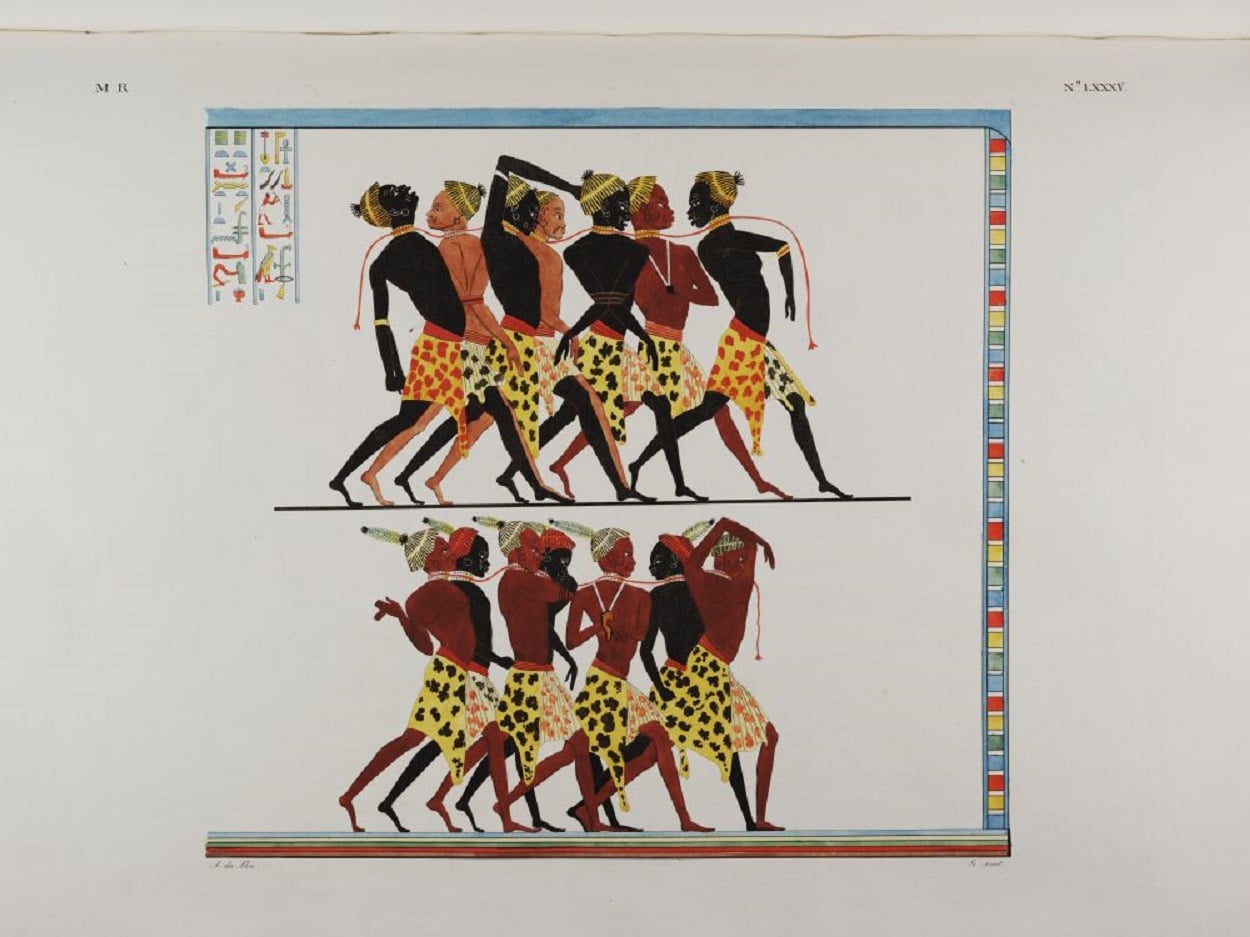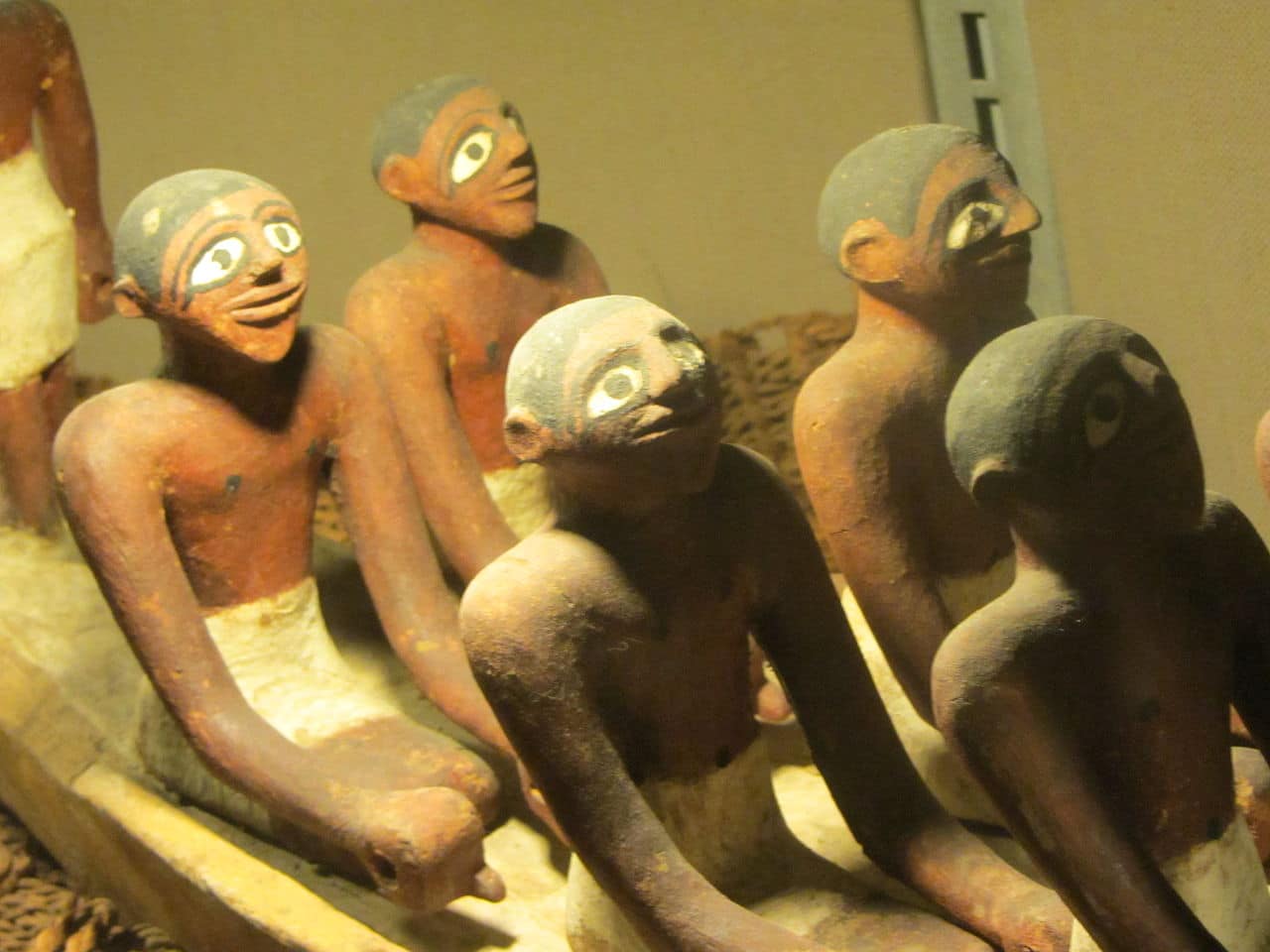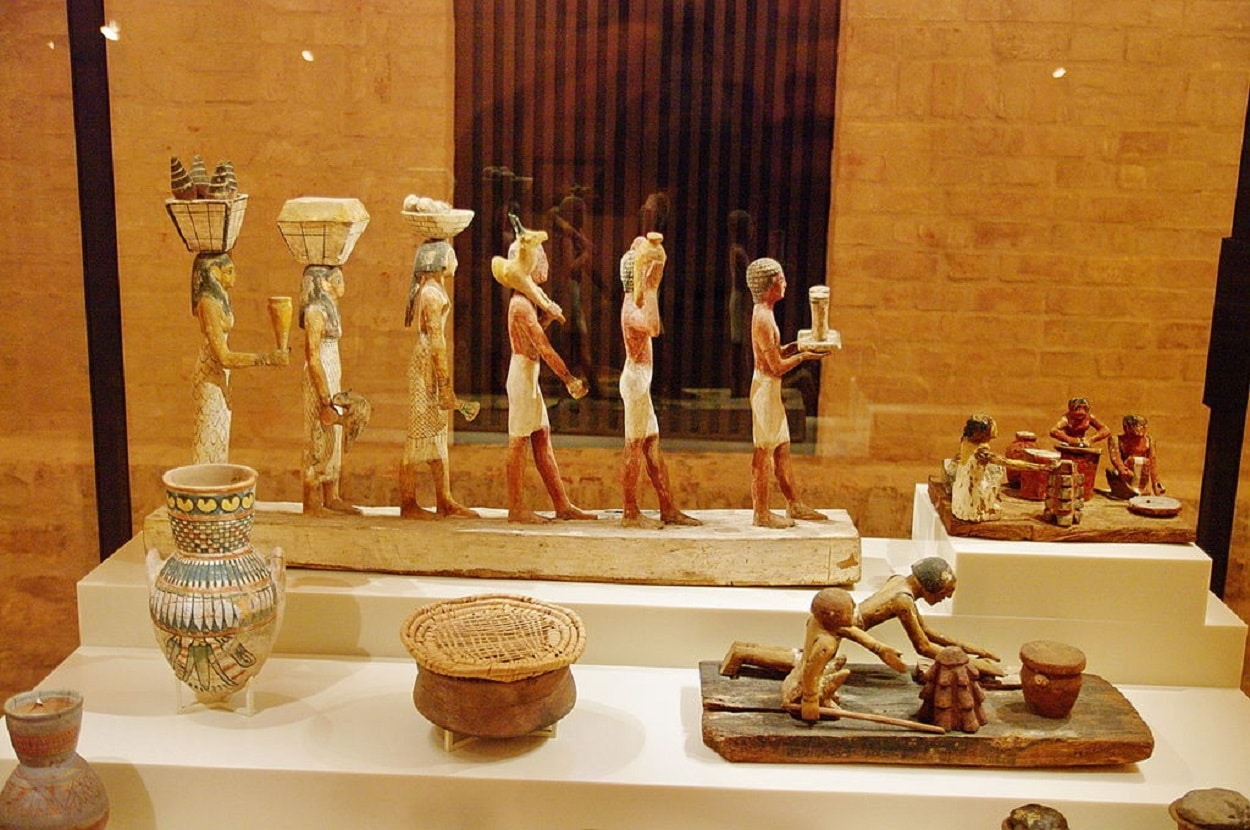
If you like the history of the first civilizations, you have probably wondered if there were slaves in the Ancient Egypt. As Westerners, we are used to reading about slavery in the Classic Greece and also in the Roman empire. However, this circumstance has been less studied in regard to the creators of the pyramids.
The role of the underprivileged classes in the country of the pharaohs is fairly well documented thanks to inscriptions found on monuments, burial mounds, and elsewhere. And these sources also offer information regarding whether there were slaves in ancient Egypt and even what their living conditions were.
There were slaves in ancient Egypt, but not strictly
The first thing we must tell you is that yes there were slaves in ancient Egypt. But you shouldn't be swayed by movies from Hollywood over the world of the pharaohs. As with so many other historical events reflected in them, any resemblance to reality is purely coincidental.
These films show how the pyramids were built by an army of slaves who worked from sunrise to sunset in the stifling desert. But this is still a cliché and a cinematic ruse. The reality was different.
Population with rights
As the Greeks and Romans later did, the Egyptians captured many prisoners in the various wars they waged to increase their territory. And, like the first ones, they were not considered free citizens with equal rights with the natives of the Nile.

Relief with Nubian slaves
However, unlike Greek or Roman slaves, who were considered little more than property by their masters just as a house might be, Egyptian slaves had certain rights.
It is true that they lacked the freedom to dispose of their lives as they pleased and that they could even be given away or sold and could even be entered into a will as a legacy. This is how documents such as the one called Ouah Will, dated to the beginning of the reign of Amenemhat IV, seventh pharaoh of the XII dynasty and who ruled between 1802 and 1793 BC.
But, compared to his fellow misfortunes of Roma o Greece, the slaves of Egypt had better living conditions, since, as we will see, they had rights and their masters could not, for example, punish them but report them to the authorities.
Prisoner of war status
As we told you, many slaves were prisoners of war. However, these also had a special status different from that of their colleagues in Greece and Rome. It is true that they could be sequerwanj or tied up for life and end up in forced labor.
But normally his condition was transient. Egyptian documents have been found that indicate how they could leave those jobs when the war that had led to their situation ended. That is, when the confrontation between his country and that of the pharaohs ends.
Even the prisoners could inherit from their lords y outsource to other people to be replaced in those hard jobs. And there is also evidence that someone denounced his supposed master for some circumstance that they considered unfair.

Rowers
Likewise, they could marry egyptian women and the children they had with them were so citizens like the natives of the country. In those cases, they could work according to their profession and it is recorded that some even became pharaoh officials.
All this leads us to think that the prisoners of war taken as slaves enjoyed advantages that the soldiers of more modern conflicts, much worse treated, would have wanted for themselves.
We will tell you more. Another group of ancient Egyptian slaves were citizens who had lost their rights for having committed serious crimes, generally of an economic nature. Well, even these had fewer advantages than prisoners of war.
Other considerations as to whether there were slaves in ancient Egypt
Let's now delve into the derechos that the Egyptian slaves had. The words with which they are called already give indications that they were in possession of them. A) Yes, Semedet o merejw They alluded to people linked to some lands. But they do not indicate that the owner of these was also theirs. It would seem that they have more similarities with medieval servants than with slaves in the strict sense.
Another term used to call them is Home, but this was also used to refer to people who performed services for others and even for those who worked for the gods (hem necher). And these would rather be a kind of priests.
The rights of slaves
The Egyptian civilization lasted three thousand years. Therefore, slaves did not always have the same rights. But we can point out some that were common to practically all the times of the Egyptian world.

Servants
The slave in Egypt had legal rights, they received a salary and, in the case of those employed in housework, they also received payment in kind. Their owner was obliged to give them fabrics, oils and other food products.
The jobs they did could be more or less tough. Among the first, the extraction of minerals and stone in mines and quarries or the construction of dikes. But, as for the latter, they could be cooks, housekeepers or farmers. There were even slaves who, due to their qualifications, worked as accountants or secretaries for their masters. In addition, in certain positions they had the possibility of ascend.
To all this is added that the condition of slave in ancient Egypt it was not irreversible. That is, a person could fall into slavery for a certain time and then be free again. In this sense, there was even volunteer slaves. They were people who, for having incurred in debt or for other reasons, sold themselves for a time to a powerful person.
In conclusion, to the question of whether there were slaves in ancient Egypt, we will answer yes. And also that their circumstances were duras, but much better than those of those who were in the same situation in other places like Greece. In any case, many times the best or worst situation of the slave depended on his relationship with the master and, specifically, of the greater or lesser humanity of this.
NOTE: «The Jews have altered the spelling and removed letters from my previous written subject. Despite that, it is understood. That is the way to defend your fallacies. Everything that I have been writing is misrepresented by computer. They have me located. This page is made by Jewish interests and is a means of auscultation (survey) on the subject.
I will expand it on our web site: "The only slaves of money are the Jews and the rest of humanity who wants to live in the Jewish way" ... IDEXNAMI
stupidity… .. stupidity is to question what the bible clearly says. They believe they are studied, cultured people and they pretend to know a lot ... when the truth is that they don't know anything.